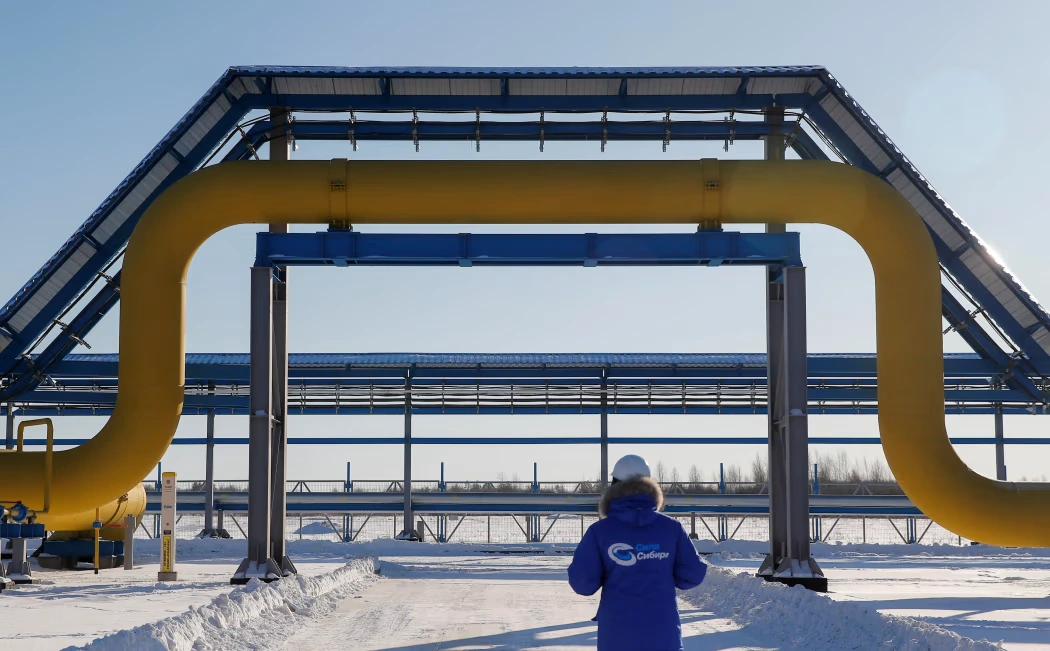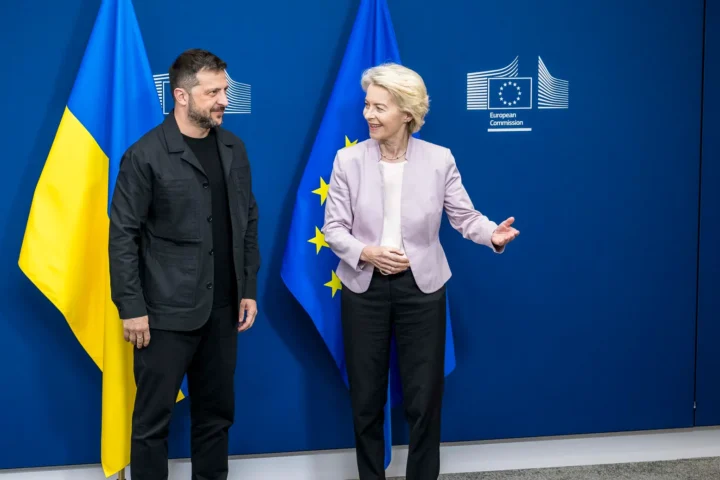The armed confrontation between Israel and Iran — despite ending in a fragile cease-fire — has alarmed Chinese leadership, prompting a serious reevaluation of the long-stalled “Power of Siberia 2” pipeline project. According to The Wall Street Journal, citing sources close to Beijing’s decision-making, rising tensions in the Middle East have led China to reconsider the reliability of oil and gas supplies from the region.
The Strait of Hormuz as a Critical Risk Factor
Currently, around 30% of China’s gas imports come in the form of liquefied natural gas (LNG) from Qatar and the UAE, transported through the Strait of Hormuz — a strategic bottleneck that Iran has repeatedly threatened to block. Additionally, China’s independent oil refineries, known as “teapots,” have become increasingly reliant on cheap Iranian crude, despite U.S. sanctions. Analysts estimate that over 90% of Iran’s oil exports now go to China.
Even President Donald Trump commented on the situation after announcing a cease-fire between Israel and Iran, stating:
“China can now continue to purchase Oil from Iran. Hopefully, they will be purchasing plenty from the U.S., also,” he wrote on social media.
Later, the White House clarified that Trump was simply noting that the cease-fire had helped avoid disruptions in oil flows through the Strait. Nevertheless, the calls for China to shift from Iranian to American oil remain.
Still, even this temporary halt in hostilities has not dispelled Beijing’s concerns. According to insiders and analysts, China is actively searching for more reliable alternatives.
Russia Back on the Radar
Russia currently supplies about 20% of China’s oil imports. Facing rising wartime expenses from the conflict in Ukraine, Moscow is eager to expand energy cooperation with Beijing. As Alexander Gabuev, director of the Carnegie Russia Eurasia Center, explained:
“The volatility and unpredictability of the military situation have shown the Chinese leadership that stable land-based pipeline supply has geopolitical benefits. Russia could benefit from that.”
Russian state media also tied the Middle East conflict to renewed interest in the pipeline project. A recent headline on the Russian news outlet Prime read:
“LNG Armageddon: China Urgently Returns to Power of Siberia 2 Project.”
Analysts expect that Russia will seek to put the project back on the agenda during President Vladimir Putin’s planned visit to Chinese President Xi Jinping in September.
A Long-Stalled Project, Rooted in Mutual Distrust
The “Power of Siberia 2” — a successor to the original pipeline launched in 2019 — has always been more critical for Moscow than for Beijing. After losing most of its gas market in Europe following the invasion of Ukraine, Russia became increasingly reliant on China as an energy buyer. However, limited infrastructure and modest LNG capacity meant that only a major new pipeline could substantially increase export volumes.
For Beijing, the situation was different. Thanks to diverse LNG imports, the deal wasn’t urgent. Moreover, according to sources close to Chinese leadership, Beijing maintains an unofficial cap: no more than 20% of oil and gas imports should come from any single country. As a result, negotiations dragged on for years, even as Russia repeatedly signaled a deal was near.
But that may now be changing.
The Strait of Hormuz — which separates Oman and Iran and links the energy-rich Persian Gulf with the Arabian Sea — is deep and wide enough to accommodate the world’s largest tankers. Its closure could shake global markets and trigger energy price spikes. While analysts believe a full shutdown is unlikely — given Iran’s own dependence on the route and the possibility of U.S. military retaliation — the Israel-Iran conflict has highlighted the scale of the risk.
As Wei Xiong, head of China gas research at Rystad Energy, noted:
“The escalation of the Middle East tensions underscores the severe consequences of a potential blockade in the Strait of Hormuz. If the chokepoint is blocked, China’s LNG supply situation will face huge change, moving from being over-contracted to supply deficit.”
U.S.-China Tensions and the “Green Transition”
Beyond the immediate turmoil in the Gulf, the ongoing U.S.-China trade war has led to a halt in American LNG exports to China — reversing years of growing energy trade between the two nations.
Meanwhile, experts note that China views natural gas as a transitional energy source — a “bridge fuel” between the fossil fuel era and its carbon-neutral future. This makes stable pipeline supplies an increasingly strategic interest.
Strengthening ties with Russia fits into this strategy, especially as the Trump administration has openly discussed driving a wedge between Beijing and Moscow. Reviving the “Power of Siberia 2” could reinforce this alliance.
Major Obstacles Remain
Even if the two sides reach an agreement, analysts estimate that construction of the pipeline would take at least five years — similar to the original 1,800-mile project. Massive investment will be needed, along with resolution of two major disputes: gas pricing and project ownership.
China is pushing for equity stakes in the pipeline, a concession Russia has so far refused to grant. This reflects the deep mistrust that still lingers between the two nations — despite their self-proclaimed “no-limits” partnership declared in 2022.
This article was prepared based on materials published by The Wall Street Journal . The author does not claim authorship of the original text but presents their interpretation of the content for informational purposes.
The original article can be found at the following link: The Wall Street Journal.
All rights to the original text belong to The Wall Street Journal .


















